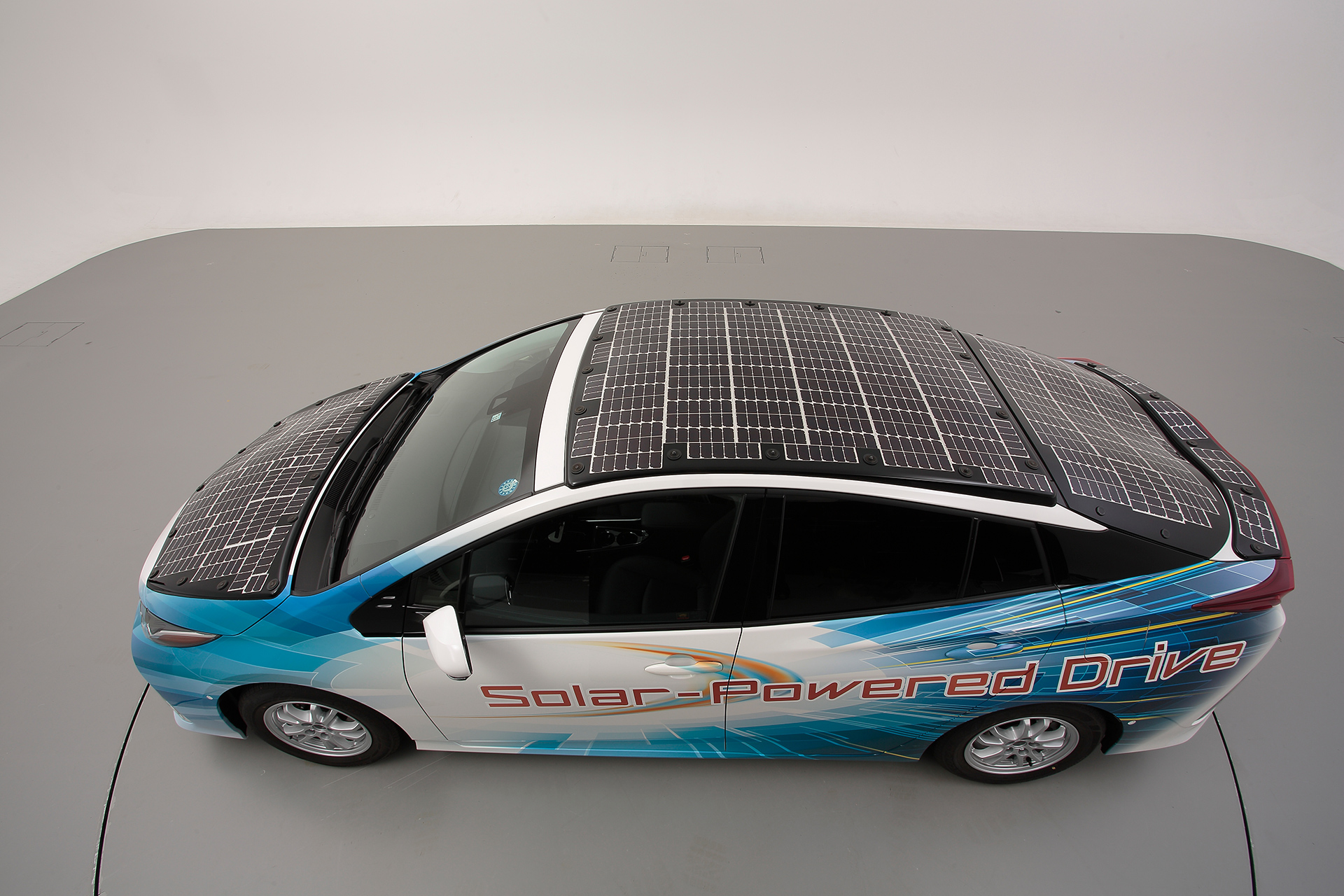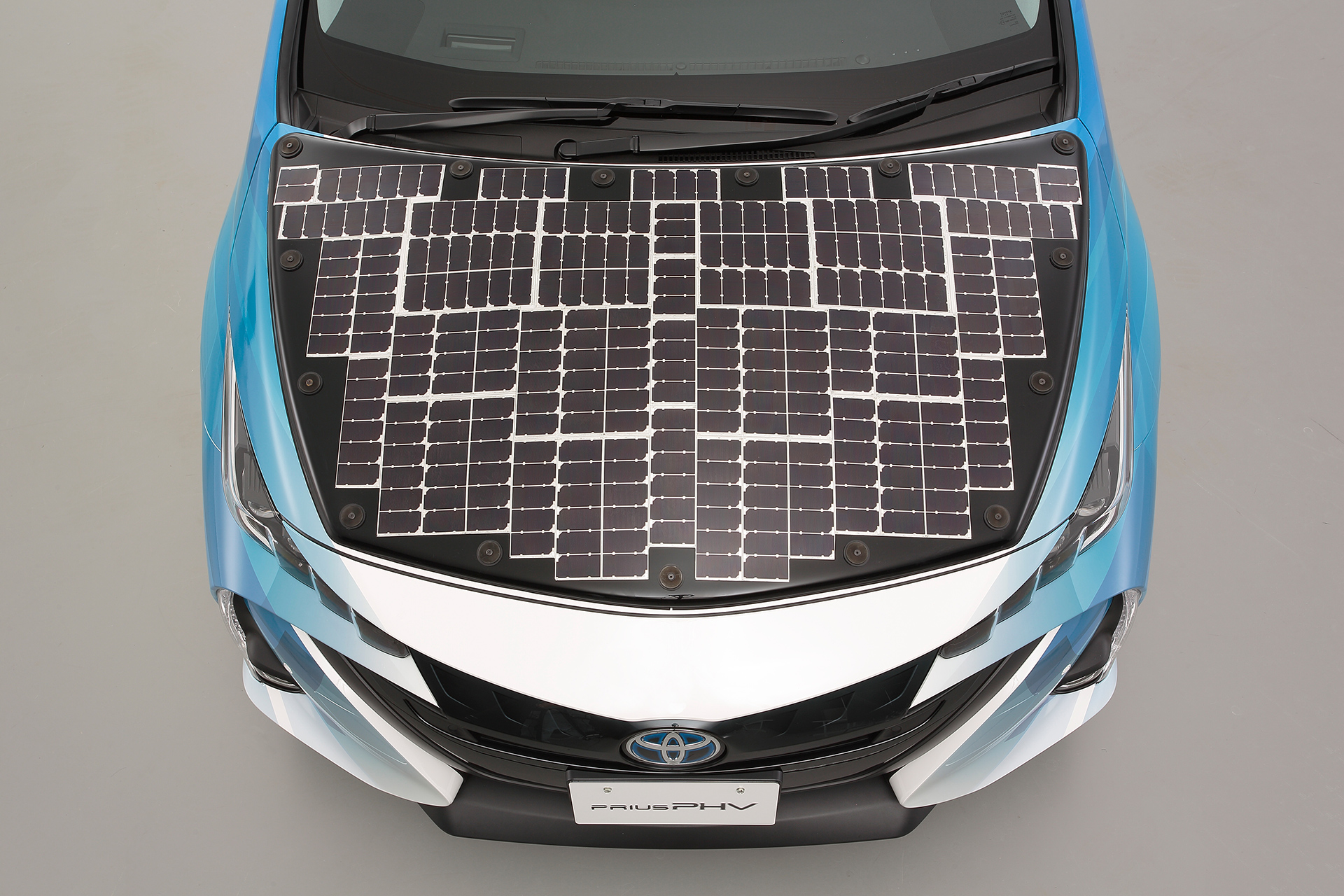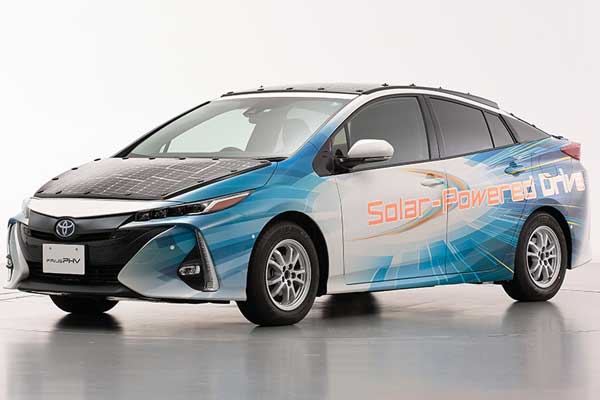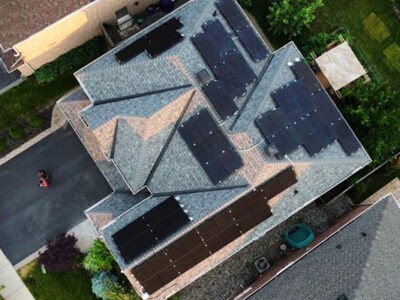Toyota has announced plans to commence public road trials for its first drivable solar-powered electric vehicle, the Prius PHV, in late July of 2019.
The trials will assess the effectiveness of improvements done to cruising range and fuel efficiency.
The Japanese multinational automotive manufacturer, together with Sharp, and the NEDO initiative aim “to contribute to the creation of a new solar battery panel market, including the transport sector, and find solutions for energy and environmental issues,” says Toyota’s press release.
Toyota plans to conduct the trials under various driving conditions in Toyota City, Aichi Prefecture, Tokyo, and other areas.

Prius PHV demo model equipped with solar battery panel (Toyota)
The solar Sharp-made solar cells are of the triple-junction compound type, sporting a conversion efficiency of 34 percent, and occasionally more.
The car is a plug-in Prius PHV, the solar battery cell is a thin film of about 0.03 mm in thickness that can wrap around the curves of the car.
The shape of the module, environmental durability, surface materials, and other factors are based on specifications for driving trials implemented by Toyota.
This makes it possible to efficiently install the film to fit the curves of parts with limited space, including the vehicle roof, hood, and rear hatch door. The rated power generation output of the demo car is approximately 860 W.

Prius PHV demo model equipped with solar battery panel (Toyota)
Toyota’s own Prius PHV joins a list of already established solar-powered cars that are ready for the market.
To date, solar-powered cars have been a bit of an outlier proposition. This current Prius PHV is quite limited in terms of what you gain versus a traditional plug-in electric.
Let’s meet the other competitors:
Sono Motors, the upcoming Sion led German start-up founded in 2012, is a small but very practical car with a real-world range of some 250 km (155 miles) and enough solar panels embedded on all flat panels that could replenish up to 30 km (18 miles) during the sunny day.
Lightyear One, a startup from The Netherlands, unveiled its own solar electric consumer car last month, but production on that vehicle isn’t set to start until 2021, and it’s a new entrant into the market, at that.













Comments